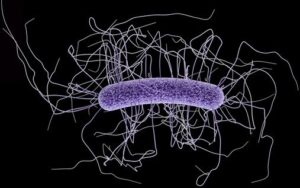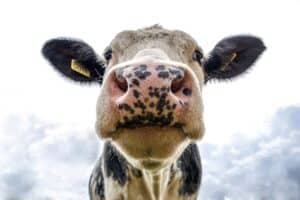The challenges associated with the transition period in dairy cattle are well documented. The
combination of negative energy and protein balance, driven by high nutrient demand and pre-
calving reductions in feed intake, the physical insults of parturition, and the metabolic demands
of the initiation of lactation leaves cows susceptible to multiple health issues and sub-optimal
production. Resulting changes in liver function, unchecked inflammation, and oxidative stress
can negatively affect these animals’ immunometabolic status, and contribute to common
transition problems.
Methionine plays multiple roles across these various issues, supplying methyl groups needed in
the formation of a range of critical compounds. These include phosphatidylcholine, which is
needed by the liver to handle the flow of fatty acids coming from increased lipolysis, key
antioxidants such as glutathione and taurine, and fetal and milk protein components. Ensuring
an adequate supply of methionine through the pre- and post-parturition period is essential to a
successful transition.
A series of experiments conducted at the University of Illinois qualified and quantified the impact
of rumen-protected (RP) methionine supplementation in transition dairy cows. Treatments
included a negative control and the same diet with the addition of RP methionine, RP choline, or
both.
In a production trial (Zhou et al., 2016a), cows receiving methionine exhibited greater dry
matter intake both close-up (29.0 vs 31.5 lb, p=0.02) and post-partum (37.8 vs 42.2 lb, p-0.02),
milk production, and milk protein than those in the choline-only or control groups (below).
Additionally, incidence of ketosis (13 vs 7 cases) and retained placenta (9 vs 3 cases) tended (p=0.07) to be lower with methionine supplementation.
A separate experiment (Zhou et al., 2016b) utilizing liver and blood biomarker analysis demonstrated the positive influence of RP methionine (but not RP choline) on liver function, inflammation status, and immune response (see table). Additionally, an in vitro pathogen challenge using collected plasma samples showed greater leukocyte phagocytosis capacity (p=0.01) and oxidative burst activity (p=0.03) for the RP methionine treatments.
Additional work (Zhou et al., 2016c) was able to correlate these changes to alterations in
transcription and activity of specific enzymes seen with RP methionine supplementation.
Methionine clearly plays a unique and critical role in healthy, productive transition cows.
References
Zhou, Z., M. Vailati-Riboni, E. Trevisi, J.K. Drackley, D.N. Luchini, and J.J. Loor. 2016. Better postpartal
performance in dairy cows supplemented with rumen-protected methionine compared with choline during the peripartal period. J. Dairy Sci 99;8716-8732.
Zhou, Z., O. Bulgari, M. Vailati-Riboni, E. Trevis, M.A. Ballou, F.C. Cardoso, D.N. Luchini, and J.J. Loor. 2016. Rumen-protected methionine compared with rumen-protected choline improves immunometabolic status in dairy cows during the peripartal period.
Zheng, Z., T.A. Garrow, X. Dong, D.N. Luchini, and J.J. Loor. 2016. Hepatic activity and transcription of betaine- homocysteine methylransferase, methionine synthase, and cystathionine synthase in periparturient dairy cows are altered to different extents by supply of methionine and choline.



